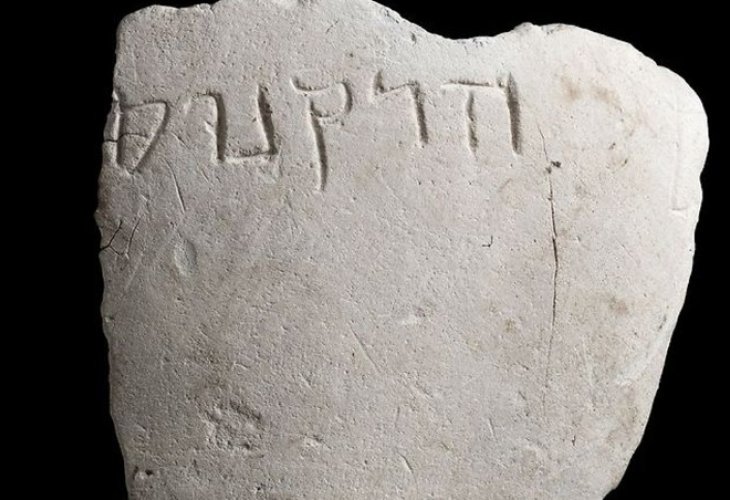Hasmonean Era: Was Hyrcanus' Bowl Found in Jerusalem?
An ancient stone bowl inscribed with the name "Hyrcanus" has been uncovered in Jerusalem's Old City.
 (Photo: Clara Amit / Courtesy Israel Antiquities Authority)
(Photo: Clara Amit / Courtesy Israel Antiquities Authority)An ancient stone bowl from the Hasmonean period, inscribed in Hebrew with "Hyrcanus," was discovered in the Old City of Jerusalem.
This rare artifact, approximately 2,500 years old, was found beneath a ritual bath. It was uncovered during archaeological excavations by the Israel Antiquities Authority at the Giv'ati parking lot in the Jerusalem Walls National Park, and now, just in time for the festival of Chanukah, it is being revealed to the public.
Dr. Doron Ben-Ami from the Israel Antiquities Authority and Prof. Esther Eshel from Bar-Ilan University stated, "The bowl is one of the earliest examples of chalk vessels (a type of limestone) found in Jerusalem. These types of vessels were widely used by Jews because they were considered impermeable to ritual impurity."
Who was Hyrcanus, the owner of this bowl? Researchers point out that this name was very common in those days. Dr. Ben-Ami and Prof. Eshel explained, "Although during this period well-known figures bore this name, such as John Hyrcanus, the grandson of Mattathias the Hasmonean who ruled Judea, and John Hyrcanus II, the son of Alexander Jannaeus and Salome Alexandra, it is impossible to determine whether the bowl belonged specifically to them."
The bowl was found in the excavations beneath the foundations of a ritual bath that was part of a purification complex operating in the Hasmonean period.
The bowl uncovered today was found very close to the site where remains of the Greek "Acra" fortress were revealed last year. The "Acra" is the renowned stronghold built by Antiochus IV to control the city and oversee the activities in the Temple, which was ultimately defeated by the Hasmoneans.
The Giv'ati parking site in the City of David, where this historical bowl has now been revealed, is among the largest excavation areas opened in Jerusalem so far.

